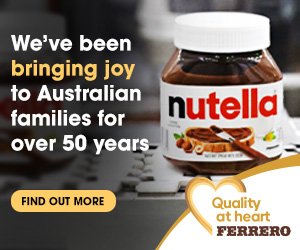A new report from the Grattan Institute has reignited calls for a sugar drinks tax to tackle obesity and diabetes.
Sickly sweet: It’s time for a sugary drinks tax shows that obesity has tripled in Australia since 1980 and diabetes has nearly tripled since 2000. The report says sugary drinks are the biggest single source of sugar in our diets, and they increase people’s risk of developing both diseases.
The report highlights the success of sugar taxes elsewhere in the world, where they they slash sales and get manufacturers to put less sugar in their drinks. In the UK, for example, one in three products had more than 8g of sugar per 100ml before a sugary drinks tax was announced. Four years later, only one in 12 had that much sugar.
Sugary drink taxes will take time to make people healthier, according to the report, but there are already promising signs. Studies have found reduced obesity among girls, less dental decay, and fewer children having to go to hospital to get teeth removed.
The report calls for Australia to introduce a tiered tax that targets the drinks that have the most sugar, with a top rate of 60c per litre, and no tax on low-sugar drinks.
Grattan Institute modelling shows that:
- The proposed tax would reduce consumption of the drinks with the most sugar by about 275 million litres a year.
- The average Australian would drink nearly three quarters of a kilogram less sugar each year.
- The tax would give the federal government an extra half a billion dollars in the first year.
“Australia needs many policies to improve our diets and our health,” said report lead author and Grattan Institute Health Program Director Peter Breadon. “But a tax on sugary drinks is the cheapest and easiest to implement.
“The government should get on with it, as part of a multi-pronged assault on the twin scourges of obesity and diabetes.”
Support
The calls for a sugar tax have been backed by the Australian Medical Association (AMA) and the Australian Dental Association (ADA).
AMA President Professor Steve Robson says the report once again shows how targeted sugar taxes work to reduce the amount of sugar in many of our most commonly sold drinks.
“Sugary drinks make us sick, and we know this is a huge health problem for Australia,” Professor Robson said.
“Sugar hides in a lot of drinks and we don’t realise the huge quantities we are actually consuming ― it’s not always immediately apparent.
“And as was exposed recently, while manufacturers bombard consumers with messaging suggesting they are reducing sugar content, they are in fact increasing sugar content in some drinks.”
ADA President Dr Scott Davis says Australia must implement a tax on sugary drinks to not only curb the country’s obesity crisis but to slow down the rate of tooth decay.
“As we know from numerous research studies and as made clear by this Grattan report, sugary drink taxes have led to improvements in oral health in several countries around the globe which have already instituted a levy on sugary drinks,” he said.
“As long as our government drags its feet, Australia will remain behind the 100 plus countries around the world which have taken the step to combat sugar consumption via sugar-sweetened beverages.”
‘Misguided measure’
Earlier this year, the Australian Beverages Council rejected a call for tax on soft drinks, labelling it a “misguided measure” that misses the mark and will only hit hardest those households that can least afford it.
“The drinks industry will continue to support consumers with more choices and less sugar,” Australian Beverages Council CEO Geoff Parker said. “We urge other sectors to play their part and commit to their own reductions in sugar, saturated fat and sodium. In 2024 we need a whole-of-industry commitment to playing its part along with government in addressing this complex problem.”





